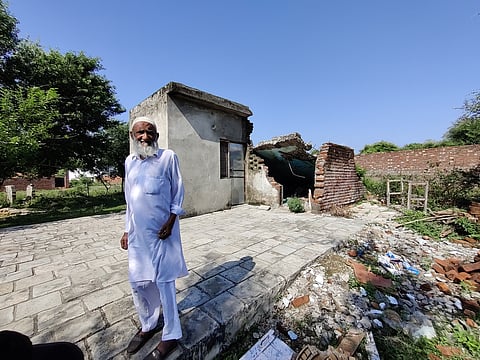How government bulldozers razed the hopes of the landless in Jammu and Kashmir
On 11 January 2022, bulldozers belonging to the Jammu Development Authority demolished the home of Saif Ali and his daughter in Paloura village, which falls in the Jammu district. The JDA had ordered the action claiming that the house was an illegal encroachment on government land. The Ali family said they have lived on the land for more than three generations. They once cultivated crops and reared livestock on 12 acres here. Five decades of gradual dispossession to allow for the expansion of a housing colony that encircled the land left them with little more than three acres, including the patch on which their house stood. Last year, they feared losing it all.
The demolition of Ali’s and other houses in the area was one of a series of actions that authorities across Jammu and Kashmir undertook to recover land once granted to residents of the erstwhile state under a land-regularisation law, referred to in the region as the Roshni Act. When the law was struck down by the courts in October 2020, the authorities began retrieving land granted under it, resorting to demolitions in some cases to evict landowners who they deemed encroachers. In some demolition drives, the authorities went against a suggestion by the Supreme Court of India not to demolish houses and leave people homeless. Official district administration data on retrieval of encroached lands shows significantly more action taken in the Muslim-majority Kashmir Valley than in Hindu-majority Jammu – both of which are now administered directly by the central government in New Delhi after Jammu and Kashmir was stripped of statehood and made a union territory in 2019. More action has also been taken against small landholders than against wealthy and powerful families who also got land regularised under the Roshni Act.

